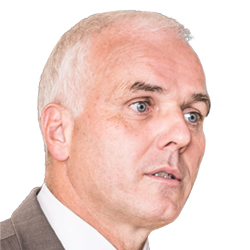Speaker Bio & Abstract

Directorate of Earth Observation Programmes
European Space Agency
BiographyMaurice Borgeaud is Head of Department at the European Space Agency (ESA), responsible for science, applications, and climate activities in the Earth Observation (EO) Directorate. His main tasks are to interact with both the scientific community and industry in order to propose new and innovative EO satellite missions. He also participates in the definition of the long-term EO exploitation strategy to be realized via a coherent programmatic framework that addresses the full spectrum of EO user communities. He is managing the ESA effort on climate change including the development of essential climate variables, promotes the use of EO data to reach he UN SDG’s, and represents ESA in the Board of the International the International Charter Space and Major Disaster.
M. Borgeaud earned an Engineer Degree from EPFL, Lausanne and a Ph.D. Degree from the Massachusetts Institute of Technology. He is a Fellow of the IEEE and associate Editor for the “IEEE Transactions on Geoscience and Remote Sensing”.
AbstractCopernicus is the European Programme for the establishment of a European capacity for Earth Observation and is a game-changer in the EO landscape providing unprecedented volumes of global, comprehensive, accurate, repeatable and timely EO data that are enabling the start of a new era of Earth System monitoring.
This talk will give an overview of the current Copernicus system, both the space component and the Data and Information Access System (DIAS). The talk will give examples of the ESA Thematic Exploitation Platforms (TEPs), which aim to exploit these large data volumes with todays enhanced computing capabilities, and the Climate Change Initiative (CCI) which is producing a set of more than 20 global Essential Climate Variable (ECV) data products required by climate science in accordance with the requirements specified by the Global Climate Observing System (GCOS).
Finally, an overview will be given of a new initiative in the ESA Earth Observation Programmes Department, the -Lab; whose mission is to Accelerate adoption of disruptive technologies to extend Europes leadership in Earth Observation.